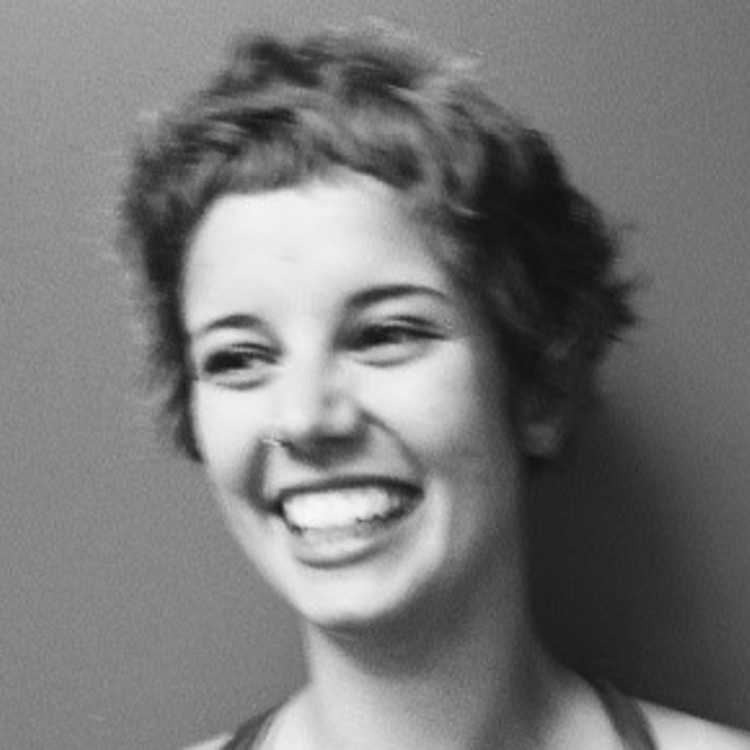Why I Think Fringe Festivals Are Hunky Dory
The road from artistic concept to actual fruition is a long, hard, and potentially expensive one. How many of us have been awakened from a dream to jot down on a piece of paper next to the bed, “Juggling Giraffes,” only to find the concept too daunting to pursue in the sober light of morning? Sure, the thought of 500 paid attendants in a gorgeous theatre, with scarlet velvet curtains framing a golden stage, where a beautiful giraffe elegantly sculptured by nature tossing screaming chimps into the air—first two, then three (Look, Jesus fucking Christ, he's been tossed four more! There's no way in heaven! That's seven chimps—one of them has a buzz saw! Did I just pee my pants?), satisfies the creative muse, but when we check into the actual logistics of launching such a project:
(You, on the phone): “Hello, yes, I need to check on rates for insurance for a juggling giraffe with chimps and a buzz saw? Um, hmmm, it's been done before? There was an 'incident?' The buzz saw flew where? And the child was how old? Oh, I see.”
By slowing things down, trusting the writing, and maturing, every aspect of my work improved. For me, Fringe was an invaluable experience.
Not to mention the securing of the giraffe, the theatre, the chimps, the light man, the ushers, and the food in the lobby. The giraffe litter box. Whose job is that? It goes on and on. It's no wonder guys like Mitt Romney are dissuaded from artistic endeavors as children and vow to get into politics and cut artistic funds and grants in the hopes of making people realize that art is too much trouble, and “if at first you don't succeed, give up, don't make an asshole out of yourself.”
There needs to be an opportunity, you say. A laboratory, a testing ground where idiosyncratic productions might find an audience. Venues filled with creative minds, appreciative audiences, left-of-center manifestations—challenging, entertaining, music, comedy, drama, dance, the avant garde, and better yet, a combination of the aforementioned. How about we make a festival, a few days, better still a few weeks, better yet a whole month, (think Edinburgh, Scotland) where this could take place? An insulated little community of like minds! And if the performers and the audience could get shitfaced drunk after the show every night, so much the better.
And so the Fringe Festival was born.
Wasn't I Mr. Pragmatic? Tackling the economic issues initially? But here's where it gets good in the Fringe Festival advantage department: every artist, if he or she is honest, is going to be doing comparative analysis. How does my piece stack up against my peers'? I'm not necessarily talking about in the competitive sense, although to a degree that exists, but more often the acts are so strikingly dissimilar that the expression, “apples and oranges” has never been so applicable. Some acts raise the bar, some leave you scratching your head and wondering how they ever got the balls to put the piece of trash on the stage, but occasionally you come across that rare bird that does what great art sets out to do—it inspires. That, my friends, is the fuel that drives life's fire.
So it was for me when I stumbled into a tent at the Edinburgh Fringe and caught the act of a woman named Meow Meow. Do you believe in love at first sight? This was some kind of musical comedy cabaret hybrid, Paris in the 30s, Berlin in the 20s, London in the 60s—a marriage of Bertold Brecht and Judy Garland on narcotics that set my soul a twitter. I got tickets from my producer. I made phone calls to get more free tickets. I bought tickets. I saw the show, (oh God, this is embarrassing) thirteen times in the month I was there. I was like a Deadhead who never came down off of acid to realize, “Christ, this band sucks!” Does this kind of adulation add up to anything other than infatuation and lonely masturbation? Hell yeah! Because I found myself writing more—not only fine tuning the show I had, but writing rough drafts of future shows. This Goddess was kicking my ass. I had to lift my work up to her level. There is nothing that money can buy that compares to this. It is so amazingly awesome when it happens, and it could happen to you at the Fringe. Did it happen like this for everybody? Probably not—I had one young lady that accompanied me to the show declare, “She sounds like a bunch of cats in a bag.” I was vindicated, however, when David Bowie himself invited Meow Meow to a festival he was curating and she won the highest honor that year.
Prior to participating in the “Fringe world” I had had little experience with “theatre” per se. My show was unquestionably not your typical “singer-songwriter” fare. I had come purely from a “rock and roll” background, and when I stripped it down to “one man and a guitar,” I missed the interaction and power of a rhythm section. I beefed up the sound and tried to add elements of comedy and spoken word. I was watching a lot of solo shows, (bear in mind this was almost twenty years ago) so I studied a lot of Lily Tomlin's Intelligent Life in the Universe and Spaulding Grey's Swimming to Cambodia. Still, there were few punk rock clubs that were conducive to extended dialogue, yet I fit it in where I could.
After a couple of albums on a major label, I then signed with Ani Difranco's prestigious indie label, Righteous Babe Records, and toured relentlessly across the country and overseas. I wondered if there was a way to keep my show in one location for an extended period of time. I signed with Invasion Group Management team. I came to them with the idea of trying to get my act into theatres. I got booked into a high-end comedy club on 14th Street in New York City for a “residency”—I performed every Tuesday night for three months. They brought director Kate Valentine (best known for the traveling vaudeville show, The Va-Va-Voom Room). We filmed the show each week, and Kate helped me to shape the little pieces I had been doing into what turned out to be both autobiographical and semi-chronological story. Before I knew it, we had a first draft, and a title! The Terrorism of Everyday Life!
After undertaking another residency at The Knitting Factory in New York and positive press response, we were ready to go to Edinburgh—to the largest Fringe Festival in the world. Three thousand acts vying for attention. I’m proud to say I held my own, and even walked away with the 2007 Herald Angel Award.
What have I learned through this process? The most difficult thing was knowing to trust the script. I was used to total improvisation every night. In fact, I prided myself on my ability to turn the audience in a positive direction regardless of what elements I was battling. Delivery was everything. By slowing things down, trusting the writing, and maturing, every aspect of my work improved. For me, Fringe was an invaluable experience.
Although Fringe Festivals aren’t called “conferences” per se, it goes without saying that the networking opportunities are abundant, and although I know none of us would shamelessly plug our talents over a drink and/or sex, nonetheless I thought it would be wise to point out that that sort of thing does exist. Personally I frown on it. (By the way, if you found this blog entertaining to the point of hysteria I can be reached for hire here).
In conclusion: be creative, have fun, and stay insane. It suits you. It's the Fringe style.



Comments
The article is just the start of the conversation—we want to know what you think about this subject, too! HowlRound is a space for knowledge-sharing, and we welcome spirited, thoughtful, and on-topic dialogue. Find our full comments policy here
have my boobs told you lately how much they love you?
miss you, my friend.